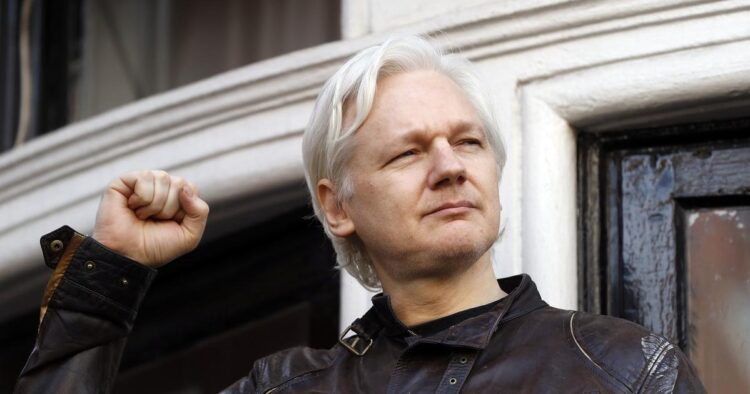In the legal battle surrounding WikiLeaks founder Julian Assange, a British court has ruled that he can appeal against an extradition order to the United States. The decision was made by two High Court judges, indicating that Assange has legitimate grounds to challenge the UK government’s extradition request.
Assange, who has been residing in a high-security British prison for the past five years, faces a series of charges in the US, including 17 counts of espionage and one count of computer misuse.
These charges stem from the publication of classified US documents on WikiLeaks nearly 15 years ago. The Australian computer expert had sought refuge in the Ecuadorian Embassy in London for seven years before his arrest.
ALSO READ: “Assange Extradition Case: WikiLeaks Chief Slams Legal Process as “Corrupt””
During the hearing in the High Court in London, Assange’s legal team argued that the assurances provided by the US government regarding press protections were insufficient. They contended that the US failed to guarantee Assange’s rights under the First Amendment of the US Constitution, especially as he claims protection as a journalist for publishing classified information.
The outcome of the appeal process could result in Assange being extradited to the US to face trial, or it may provide him with another opportunity to challenge his extradition. The decision will largely hinge on the weight given by judges to the assurances provided by US officials regarding Assange’s rights during trial.
Assange’s defense team maintains that he acted as a journalist exposing military wrongdoing in Iraq and Afghanistan, while the US government alleges that his actions amounted to espionage and unauthorized disclosure of classified information.
The case has sparked debates over press freedom, government transparency, and the limits of journalistic activities.
While Assange’s supporters gathered outside the courthouse, expressing solidarity with banners and chants advocating for press freedom and Assange’s release, legal proceedings continue to unfold.
The case has garnered international attention, with implications for the future of whistleblowing, journalism, and extradition law.
If Assange succeeds in his appeal, it could prolong the legal saga further. However, if the court accepts the assurances provided by the US government, it may mark the culmination of Assange’s legal challenges in the UK.
Nevertheless, uncertainty remains regarding the immediate consequences and potential further legal avenues, including a possible intervention by the European Court of Human Rights.
Amidst the legal proceedings, there have been hints of a diplomatic resolution. President Joe Biden recently indicated that he was considering a request from Australia to drop the case against Assange, potentially allowing him to return to his home country.
Such developments underscore the complexity and fluidity of the situation surrounding Assange’s extradition and legal fate.

















Comments